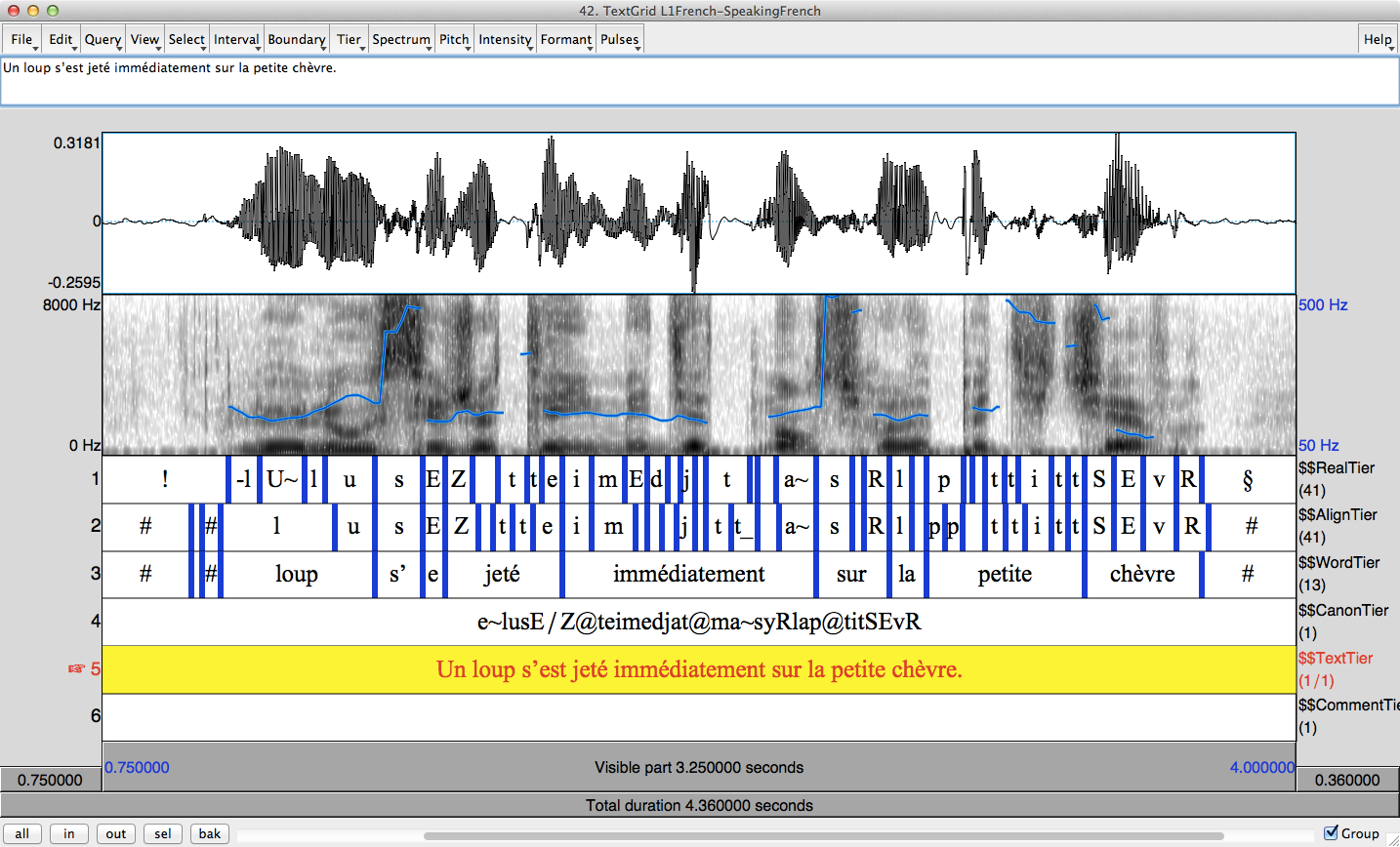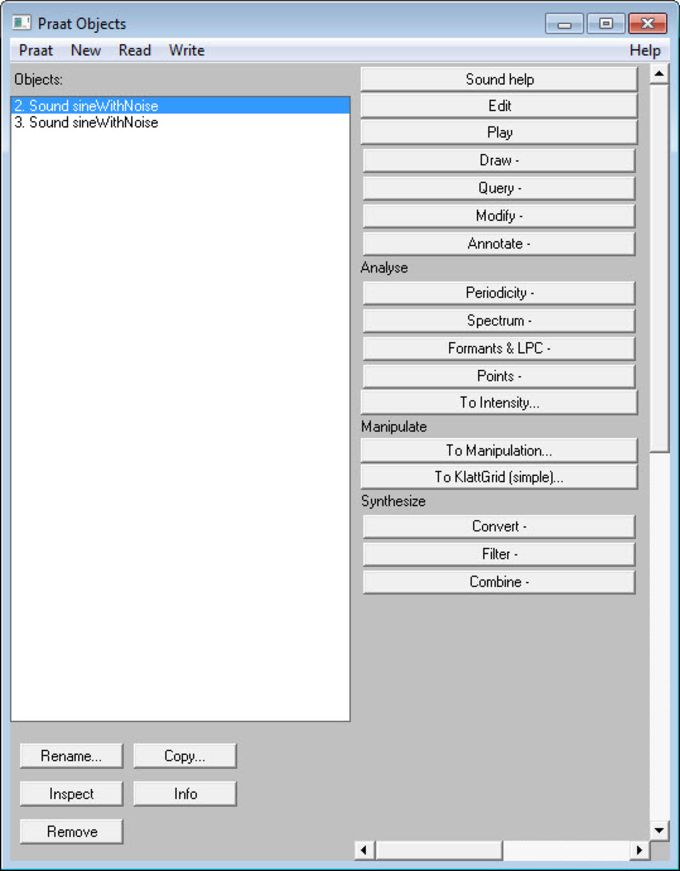Praat is a freely available program written by Paul Boersma and David Weenink. It is primarily intended for acoustic analysis of speech, but it has some additional functions such as speech synthesis and some constraint-based grammar learners. It can even run some basic perceptual experiments.

The program Praat is a versatile speech analysis program, which becomes a standard in speech/language analysis scientific community. Automatic speech segmentation has been developed and used in Praat using a plugin called EasyAlign, which requires and input text (separated sentences) and clean audio recordings with quiet pauses between the sentences to operate. In this paper, a new functions will be evaluated and implemented into Praat to improve automatic speech segmentationprocesses and enables to process also noisy audio recordings with no input texts available.
A version of the “smoothed cepstral peak prominence” (ie, CPPS) has recently been implemented in the program Praat. The present study therefore estimated the correspondence between the original CPPS from the program SpeechTool and Praat 's version of the CPPS. The number of credits toward a master’s degree that may be transferred from another graduate institution may not exceed 25 percent of the total number of credits required for graduation, with the exception of the first-professional (M.Arch.) program in Architecture, which permits up to 33 percent of the program’s total credits to be. In this video tutorial, you will learn how to download and install PRAAT on your computer. Praat program, therefore, every constraint is taken to have a ranking value, so that you can do stochastic as well as ordinal OT. An OT grammar is implemented as an OTGrammar or OTAnyGrammar object. In an OTGrammar object, you specify all the constraints, all the possible inputs and all their possible outputs.
One of them is using also our own cloud based ASR (Automatic Speech recognition) solution developed. The results of the automatic speech recognition and different audio processing (noise-gate, de-noiser, normalization) were added into the Praat system to expand the EasyAlign functionality and improve the resulted automatic speech segmentation. The graphical output of the Praat also helps to visualize the automatic speech segmentation and also automatic speech recognition results for educational and system developers subjective evaluation purposes.
| Developer(s) | Paul Boersma and David Weenink |
|---|---|
| Initial release | 1991[1] |
| Stable release | |
| Repository | |
| Written in | C, C++, Objective-C |
| Operating system | Windows, Linux, Macintosh, FreeBSD, Solaris |
| Available in | English |
| Type | Free software |
| License | GPLv2[3] |
| Website | www.praat.org |
Praat (/prɑːt/; Dutch: [praːt](listen), 'talk') is a freecomputer software package for speech analysis in phonetics.[4] It was designed, and continues to be developed, by Paul Boersma and David Weenink of the University of Amsterdam. It can run on a wide range of operating systems, including various versions of Unix, Linux, Mac and Microsoft Windows (2000, XP, Vista, 7, 8, 10). The program supports speech synthesis, including articulatory synthesis.
Version history[edit]
Program Jysk Craiova

| Version | Date | Main |
|---|---|---|
| 3.1 | 5 December 1995 | |
| 4.0 | 15 October 2001 | |
| 4.1 | 5 June 2003 | Mac OS X edition, More than 99 percent of the source code distributed under the General Public Licence. |
| 5.0 | 10 December 2007 | |
| 5.1 | 31 January 2009 | |
| 5.2 | 29 October 2010 | |
| 5.3 | 15 October 2011 | |
| 5.4 | 4 October 2014 | |
| 6.0 | 28 October 2015 | |
| 6.1 | 13 July 2019 |
Program Jysk
References[edit]


Praat Voice Analysis
- ^Boersma, Paul; van Heuven, Vincent (2001). 'Speak and unSpeak with Praat'(PDF). Glot International. 5 (9/10): 341–347.
- ^'Release 6.1.41'. 28 March 2021. Retrieved 16 April 2021.
- ^'License'. Phonetic Sciences | Praat. Retrieved 3 September 2019.CS1 maint: discouraged parameter (link)
- ^'Praat: doing phonetics by computer'. Retrieved 20 September 2017.CS1 maint: discouraged parameter (link)
External links[edit]
- Praat: doing Phonetics by Computer — Official site

